The genus Pseudorasbora comprises only five accepted species. Representatives of the genus can be easily recognized by the upwardly directed mouth fissure, a characteristic that is rare within the carp fish (Cyprinidae). Pseudorasbora is originally distributed in East Asia (China, Russia, Japan). One species, P. parva, was unintentionally introduced in the 1970s with food fish (grass carp, silver carp, marbled carp) intended to combat algae plagues in Central Europe and is now considered one of the worst invasive species within the EU. The algae plague was a consequence of the high phosphate inputs from detergents and inadequate wastewater treatment at the time.
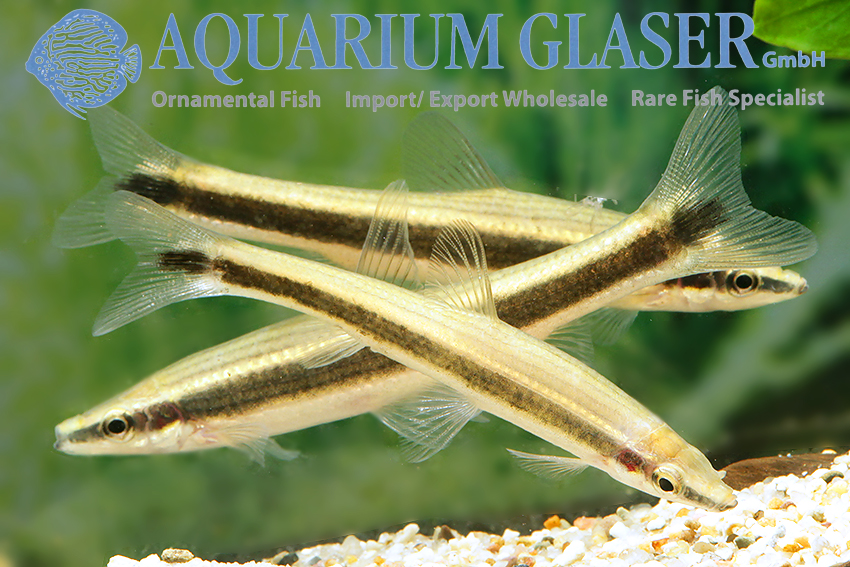
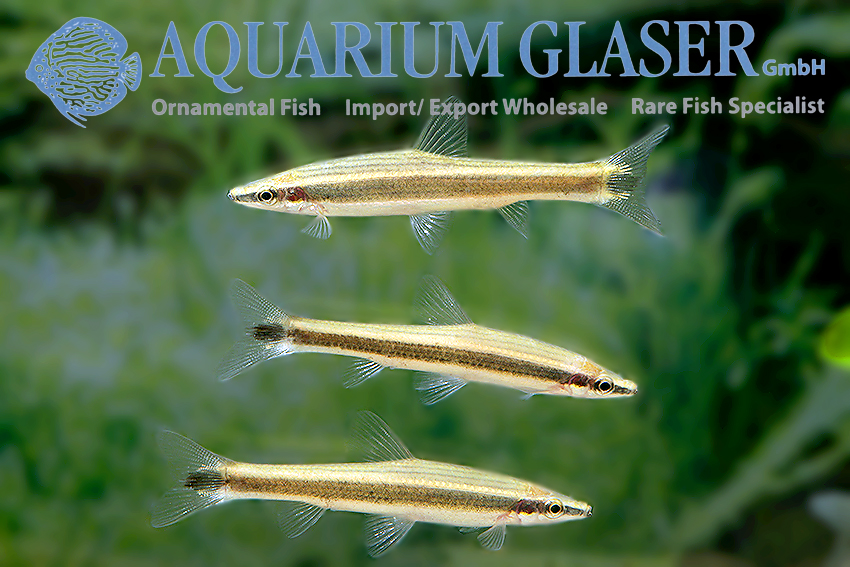
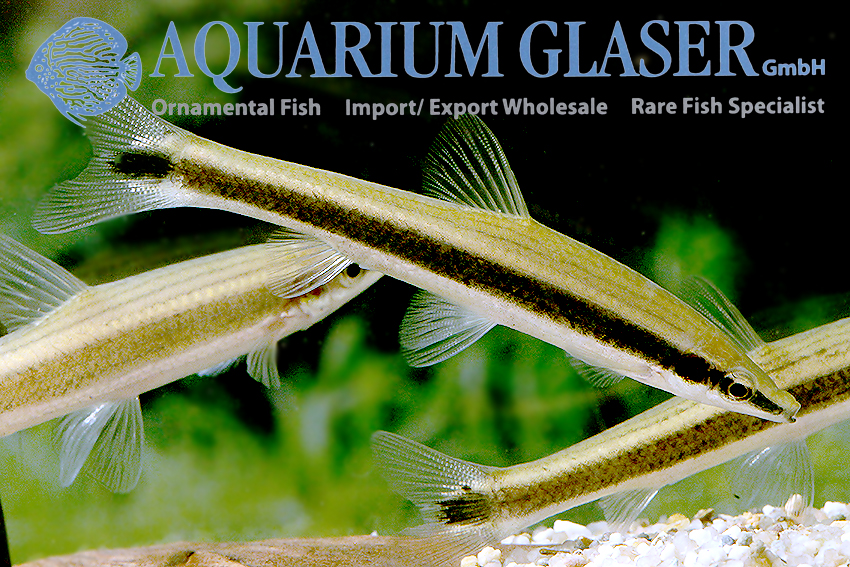
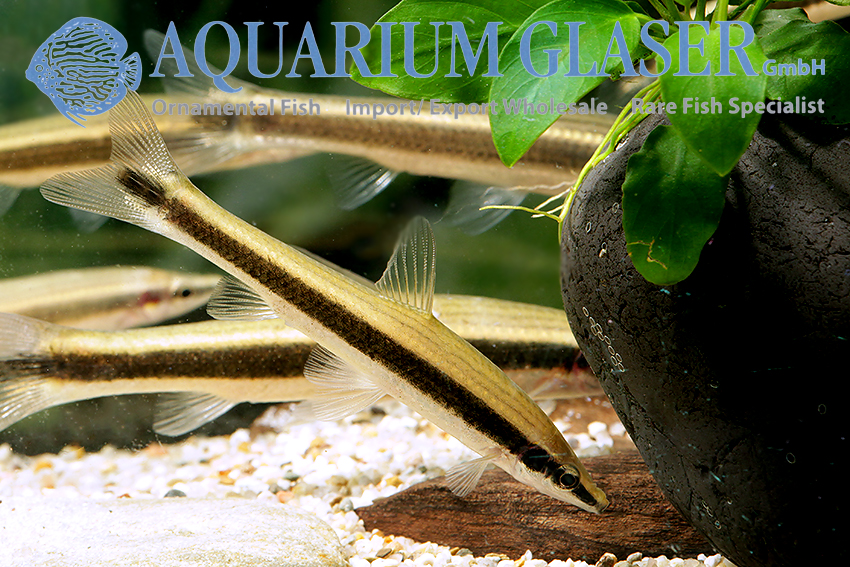
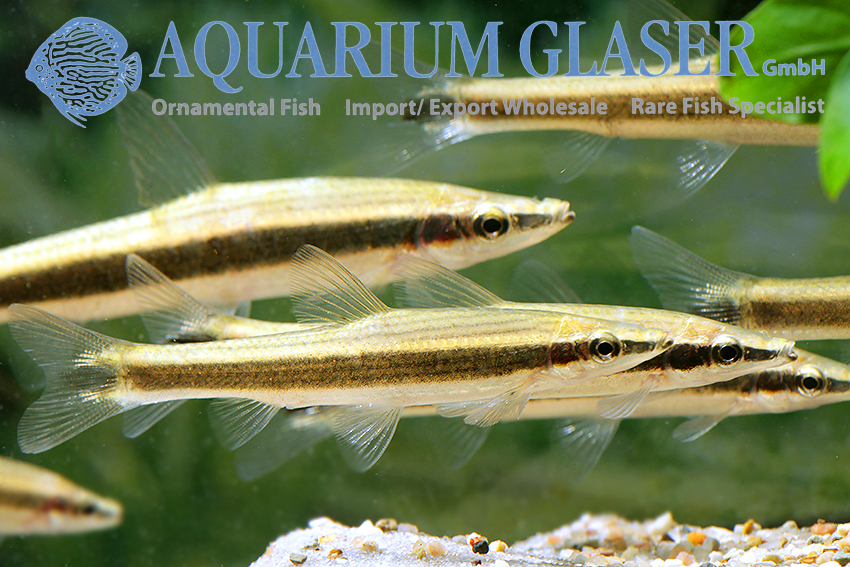
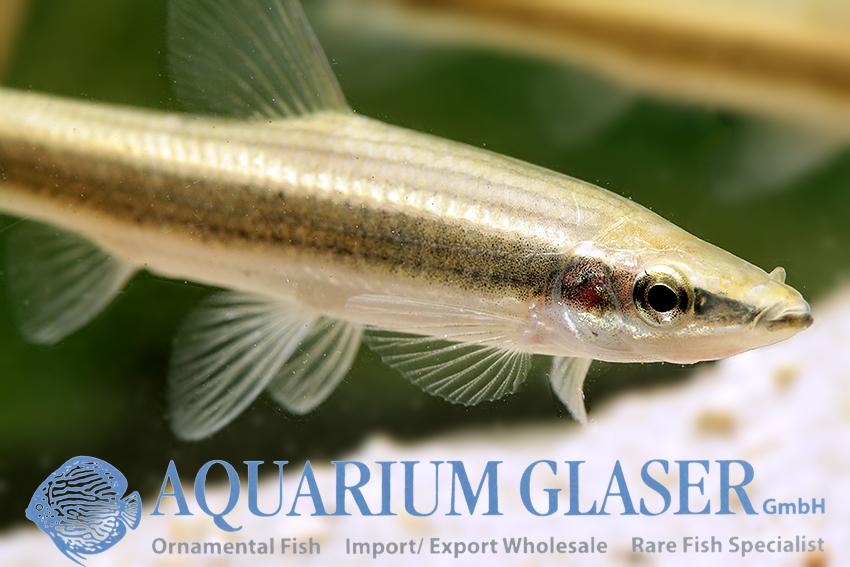
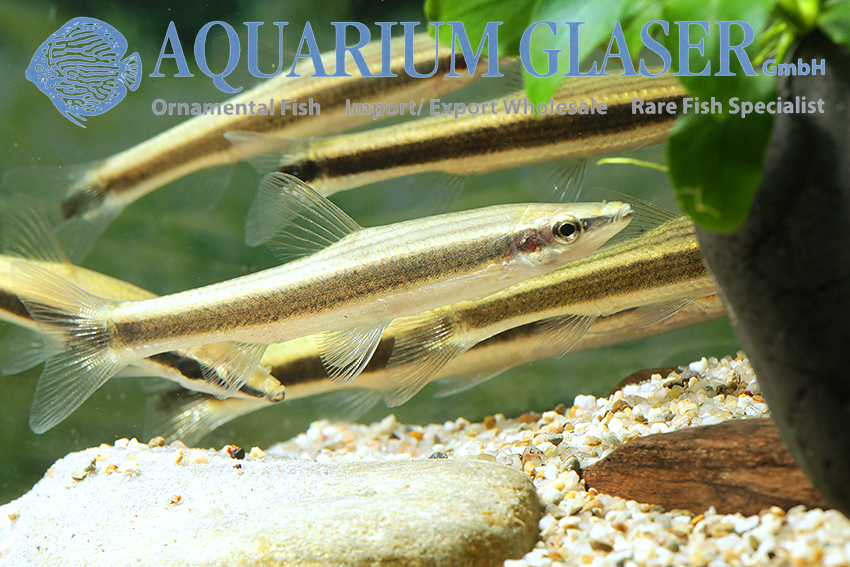
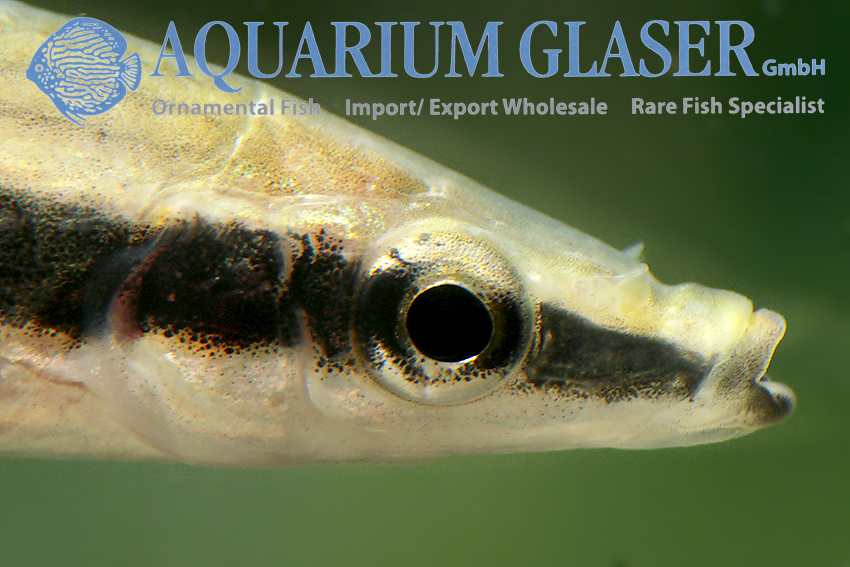
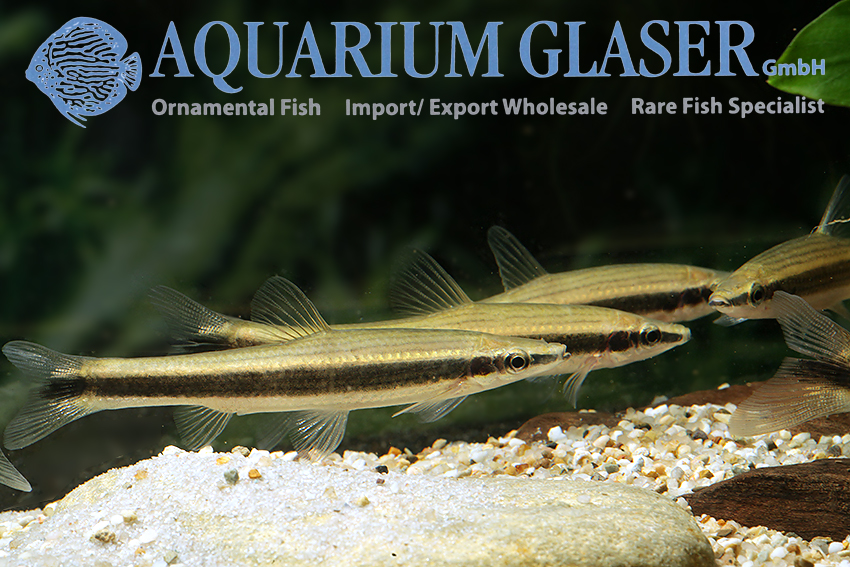
Four of the five Pseudorasbora species look very similar to P. parva, but one – P. elongata – is completely out of the ordinary. We have now been able to import a small number of these beautiful animals, which are native to China (Guangxi, Anhui and Zhejiang provinces, but are only rare and local everywhere, and are considered endangered at the type locality, the Li River) for the second time (the first time was in 2016). As the species is probably highly endangered due to dam construction and other environmental influences (although it is listed as “not endangered” ( = least concern) in the current International Red List), we very much hope that breeders will take care of the animals. Other Pseudorasbora species practise brood care, a rarity among cyprinids. In P. parva, the male aggressively guards the spawn attached to solid objects (stones, roots, aquarium glass etc.) until the larvae hatch.
Genetic studies show that P. elongata is closely related to the other Pseudorasbora species. It is therefore quite likely that their brood care behavior is also similar. Externally, these fish are strikingly similar to the tetra Anostomus ternetzi (see: https://www.aquariumglaser.de/en/09-characoids-tetra-relationship/anostomus-ternetzi-2/). Our animals are peaceful with each other. They will accept any common ornamental fish food. When feeding, these fish sometimes make strange clicking noises that sound as if you were flicking a small glass with your fingernail. Due to their origin, we recommend keeping them at room temperature (18-22°C, with a possible 3-4°C deviation upwards and downwards). The maximum length of P. elongata is given as 12 cm (standard length without caudal fin).
For our customers: the animals have code 446473 on our stocklist. Please note that we only supply the wholesale trade.
Text & photos: Frank Schäfer




